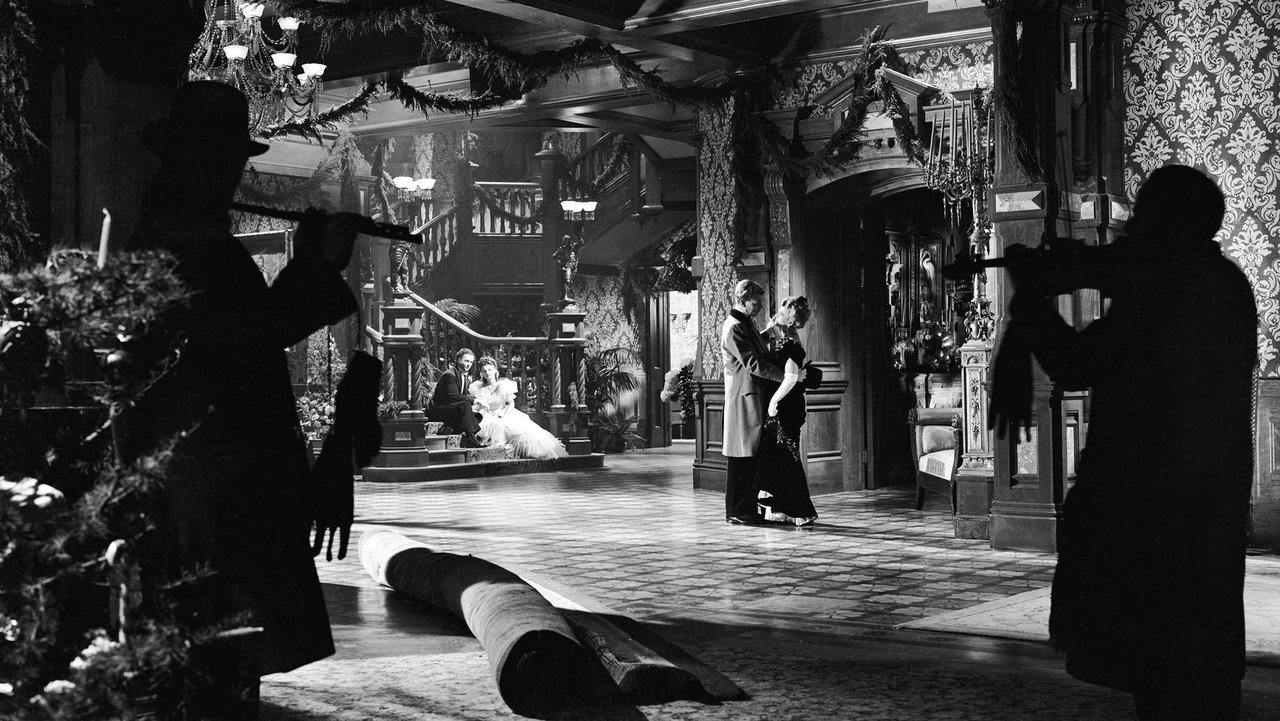

Fuck studios and their greed contracts - they botched the film, yes, but fortunately this still remains revolutionary.
I've seen enough 'context films' in my time for my brain to be able to see this edited ending as an unintentional statement in itself about corporate greed (which oddly parallels with the titular upper-class family) and makes the final line of the movie much more potent than what was initially merely just an end credit. It's weirdly spiritual in a way, art magic. Which then makes you wonder what really is 'intention' in art anyway.
And the scene before this studio ending works as an ending too! And then everything after as a kinda Kiarostami-esque (particularly Taste of Cherry's ending) last thought - something not to be seen in its plot but rather in its context, of which makes an additional statement through the lens of the plot you've just seen in the film beforehand.
Accidental auteurism.
Lol, that make sense?
Anyway, loved it. Orson was crazy ahead of his time.
This is one of those old movies, made by a master director, that I have no real right to criticize. It was very disjointed but even I could recognize the greatness in some of the shots and sequences. Maybe the choppiness of the story can be attributed to studio interference. Or, maybe not.
The story really hasn't stuck with me because I'm writing this a month after I watched it. I recall that no one stood up to Georgie, the entitled brat who basically destroyed a once great family. This bothered me throughout. I kept urging other characters to give him a good smack to try to knock some sense into him. Especially Eugene (Joseph Cotton), whose neutered behavior didn't reflect his success in life.
It reminded me of "Citizen Kane", which also underwhelmed me at times. In both cases, I struggled to be entertained while trying to appreciate the talent of the filmmaker.
Orson Welles in all his splendor, those frames, that play with shadows
I thought this was dreadful--yes, you could tell it was botched and surely the original was better. But also, not sure I'd want an extra hour of Tim Holt's performance. George is a hard character to like or invest in, and I thought Holt was like nails on a chalkboard. Too bad.
Fuck studios and their greed contracts - they botched the film, yes, but fortunately this still remains revolutionary.
I've seen enough 'context films' in my time for my brain to be able to see this edited ending as an unintentional statement in itself about corporate greed (which oddly parallels with the titular upper-class family) and makes the final line of the movie much more potent than what was initially merely just an end credit. It's weirdly spiritual in a way, art magic. Which then makes you wonder what really is 'intention' in art anyway.
And the scene before this studio ending works as an ending too! And then everything after as a kinda Kiarostami-esque (particularly Taste of Cherry's ending) last thought - something not to be seen in its plot but rather in its context, of which makes an additional statement through the lens of the plot you've just seen in the film beforehand.
Accidental auteurism.
Lol, that make sense?
Anyway, loved it. Orson was crazy ahead of his time.